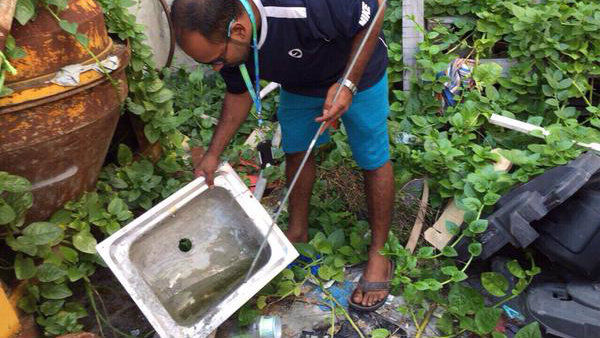WHO to confirm presence of Zika in the Maldives
Officials from the World Health Organisation are conducting tests in the Maldives for signs of the Zika virus in the wake of media reports that a Finnish man was infected by the mosquito borne virus during a visit last year.

01 Feb 2016, 09:00
Officials from the World Health Organisation are conducting tests in the Maldives for signs of the Zika virus in the wake of media reports that a Finnish man was infected by the mosquito borne virus during a visit last year.
Ibrahim Nishan Ahmed from the Health Protection Agency, said that a two-member team from WHO is in the Maldives and “have drawn up plans to conduct tests to check for signs of the virus across the country.”
Most people do not develop symptoms, but the virus has been linked to brain abnormalities in thousands of babies, mainly in South America.
“The only reported sign of the virus in relation to the Maldives is that of the Finnish expatriate,” Nishan said.
Become a member
Get full access to our archive and personalise your experience.
Already a member?
Discussion
No comments yet. Be the first to share your thoughts!
No comments yet. Be the first to join the conversation!
Join the Conversation
Sign in to share your thoughts under an alias and take part in the discussion. Independent journalism thrives on open, respectful debate — your voice matters.




